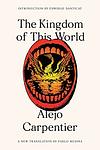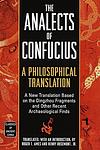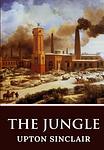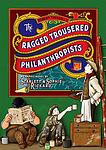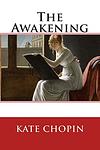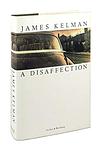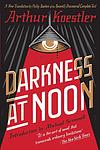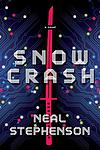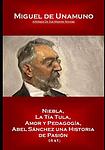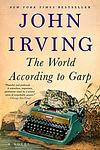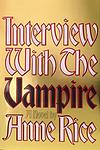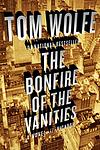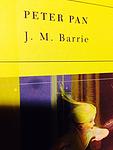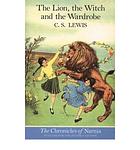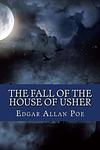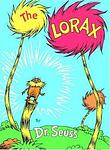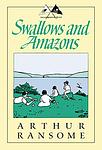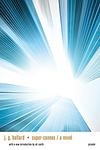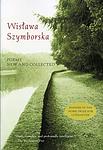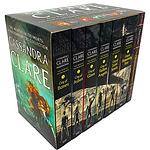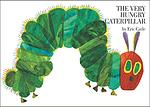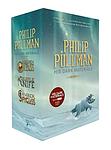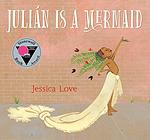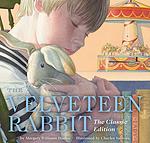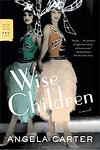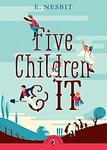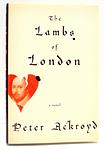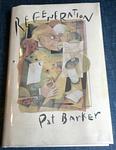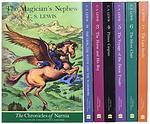Our Users' Favorite Books of All Time
This is one of the 300 lists we use to generate our main The Greatest Books list.
-
The Kingdom of This World by Alejo Carpentier
"The Kingdom of This World" is a historical novel that explores the tumultuous period of the Haitian Revolution and its aftermath through the eyes of a slave named Ti Noël. The narrative weaves together elements of magical realism and historical fact, highlighting the brutalities of slavery, the struggle for freedom, and the rise and fall of leaders. The novel also delves into the themes of power, corruption, and the cyclical nature of history, while showcasing the rich culture and folklore of Haiti.
The 792nd Greatest Book of All Time -
Loving by Henry Green
"Loving" is a novel set in an Irish castle during World War II, focusing on the lives of the servants who work there. The narrative provides a detailed and intimate exploration of the relationships, gossip, and everyday routines of the domestic staff, while the war remains a distant threat. The book is known for its unique use of language and dialogue, as well as its exploration of class dynamics.
The 579th Greatest Book of All Time -
Analects by Confucius
The Analects is a collection of sayings and teachings attributed to the Chinese philosopher Confucius and his disciples. The book emphasizes the importance of personal and societal morality, filial piety, and the cultivation of knowledge and virtue. Confucius stresses the importance of leading by example and treating others with respect and kindness. The Analects has had a profound impact on Chinese culture and philosophy, and its teachings continue to be studied and applied today.
The 460th Greatest Book of All Time -
The Jungle by Upton Sinclair
This novel exposes the harsh conditions and exploited lives of immigrants in the United States in Chicago and similar industrialized cities. The protagonist, a young Lithuanian immigrant, works in the meatpacking industry and experiences the extreme poverty, poor working conditions, and lack of social services. The narrative explores the corruption of the American meatpacking industry in the early 20th century and the hardships faced by the working class, leading to significant public outcry that contributed to the passage of the Pure Food and Drug Act.
The 191st Greatest Book of All Time -
The Ragged Trousered Philanthropists by Robert Tressell, Peter Miles
"The Ragged Trousered Philanthropists" is a semi-autobiographical novel that explores the lives of a group of working men in the fictional town of Mugsborough, and their struggle to survive in a society marred by poverty and exploitation. The story primarily focuses on a socialist protagonist who endeavors to enlighten his fellow workers about capitalism's inherent flaws and the necessity for social change, all while battling the dire conditions of his own life. The novel is a critique of capitalism and a call for a socialist revolution.
The 642nd Greatest Book of All Time -
Nine Stories by J. D. Salinger
"Nine Stories" is a collection of short stories that delve into the complex inner lives of a variety of characters, often exploring themes of innocence, alienation, and the loss of innocence. Each story is unique, offering a glimpse into a different world or situation, but all are marked by the author's distinctive narrative voice and his ability to create compelling, deeply human characters. From a young boy dealing with the death of his brother to a World War II veteran struggling with PTSD, the stories are both profound and deeply affecting.
The 466th Greatest Book of All Time -
I Capture the Castle by Dodie Smith
"I Capture the Castle" is a coming-of-age novel that tells the story of 17-year-old Cassandra Mortmain and her eccentric family living in a dilapidated English castle during the 1930s. Cassandra's father is a reclusive writer suffering from writer's block and her stepmother is a bohemian artist. The family's life changes dramatically when two American brothers inherit the estate. The novel, written in diary format, explores themes of love, poverty, and the transition from adolescence to adulthood.
The 371st Greatest Book of All Time -
The Plague by Albert Camus
The novel is set in the Algerian city of Oran during the 1940s, where a deadly plague sweeps through, causing the city to be quarantined. The story is told through the eyes of a doctor who witnesses the horror and suffering caused by the disease. The narrative explores themes of human resilience, solidarity, and the struggle against the absurdities of life. It also examines how individuals and society respond to death and disease, creating a profound meditation on the nature of existence and human endurance.
The 138th Greatest Book of All Time -
Camilla by Fanny Burney
Camilla, a young woman, navigates through the trials and tribulations of love, family, and society in 18th century England. Her journey is filled with misunderstandings, mistaken identities, and the complexities of human emotions. Throughout the story, she must grapple with her love for a man who is unaware of her feelings, her responsibility towards her family, and the expectations of society. The novel explores themes such as the importance of virtue, the pitfalls of vanity, and the complexities of human relationships.
The 1612th Greatest Book of All Time -
Demons by Fyodor Dostoevsky
"The Possessed" is a complex political novel set in a provincial Russian town, exploring the destructive influence of radical ideologies on society. The narrative revolves around a group of revolutionaries, their philosophical debates and their destructive actions, driven by nihilism and anarchism. The story is a critique of the political and social chaos of the time, showcasing the author's deep understanding of human psychology and his profound insights into the human condition. It is an exploration of faith, reason, and the nature of freedom and is considered one of the most significant works of Russian literature.
The 144th Greatest Book of All Time -
The Savage Detectives by Roberto Bolaño
"The Savage Detectives" is a novel that follows the lives of two Latin American poets, Arturo Belano and Ulises Lima, who are founders of a literary movement called "visceral realism." The book is divided into three parts and is narrated by multiple characters, providing different perspectives on the protagonists. The narrative spans over 20 years, following the poets' journey from Mexico City to Europe, Israel, and Africa, as they search for a mysterious poetess and navigate through the world of literature, sex, drugs, and the complexities of life.
The 449th Greatest Book of All Time -
An American Tragedy by Theodore Dreiser
This classic novel explores the dark side of the American Dream through the story of a young man who, despite his humble beginnings, aspires to climb the social ladder. He becomes involved with two women, one wealthy and one from a working-class background. His ambition and desire for status lead him to commit a crime that ultimately results in his downfall. The novel is a stark examination of the destructive power of unchecked ambition and the moral compromises people are willing to make in pursuit of wealth and status.
The 167th Greatest Book of All Time -
Alias Grace by Margaret Atwood
This historical fiction novel centers around the true story of Grace Marks, a 19th-century Irish-Canadian maid who was convicted of the brutal murders of her employer and his housekeeper. The narrative is told from the perspective of Grace herself, as well as a young psychiatrist who is trying to determine whether Grace is truly guilty. The book explores themes of memory, culpability, and the treatment of women in society.
The 1931st Greatest Book of All Time -
Man's Search for Meaning by Victor Frankl
This book is a memoir written by a psychiatrist who survived the Nazi concentration camps during World War II. The author shares his experiences in the camps and his psychological approach to surviving and finding meaning amidst extreme suffering. He introduces his theory of logotherapy, which suggests that life's primary motivational force is the search for meaning, and argues that even in the most absurd, painful, and dehumanized situation, life can be given meaning.
The 562nd Greatest Book of All Time -
The Artamonov Business by Maxim Gorky
"The Artamonov Business" is a multi-generational saga that follows the rise and fall of a Russian family's business empire from the 1860s up to the Russian Revolution. The narrative explores the dynamics of the Artamonov family, their personal struggles, moral dilemmas, and the impact of their actions on those around them. The story also provides a critical examination of the socio-economic changes in Russia during this period, highlighting the transformation from a feudal society to a more capitalist one and the accompanying moral decay.
The 1613th Greatest Book of All Time -
Zorba the Greek by Nikos Kazantzakis
In this novel, a young intellectual who is immersed in books and ideas embarks on a journey with a passionate and adventurous older man named Zorba. The two men have contrasting personalities, which leads to a series of philosophical discussions and adventures. The story is set in Crete and explores themes of life, death, friendship, love, and the struggle between the physical and intellectual aspects of existence. Zorba's zest for life and his fearlessness in the face of death inspire the young man to embrace a more physical and spontaneous way of living.
The 334th Greatest Book of All Time -
The Awakening by Kate Chopin
"The Awakening" is a novel set in the late 19th century New Orleans, which explores the life of a young woman trapped in societal and marital expectations. She embarks on a journey of self-discovery and independence, defying the norms of her time. The protagonist challenges the traditional roles of women as she seeks personal fulfillment, experiences sexual awakening, and struggles with her desires and responsibilities. The book is a critique of the repressive social norms, particularly regarding women and marriage, of the Victorian era.
The 199th Greatest Book of All Time -
The Clan of the Cave Bear by Jean M. Auel
This novel tells the story of a young girl named Ayla who, after an earthquake kills her family, is adopted by a tribe of Neanderthals known as the Clan. Ayla struggles to fit in with the Clan due to her physical differences and advanced cognitive abilities. Despite these challenges, she learns their customs and ways of life, and even becomes the apprentice of the Clan's medicine woman. The story explores themes of survival, acceptance, and the clash between cultures and species.
The 800th Greatest Book of All Time -
The Piano Teacher by Elfriede Jelinek
"The Piano Teacher" is a dark exploration of power dynamics, sexuality, and repression. The story revolves around a piano teacher at a prestigious music school in Vienna who lives with her overbearing mother in a state of emotional and sexual repression. Her life takes a turn when she becomes sexually involved with a young, self-assured student. The relationship, marked by sadomasochistic games and emotional manipulation, spirals out of control, leading to a tragic end. The book is a profound critique of bourgeois values and the oppressive structures of society.
The 1057th Greatest Book of All Time -
A Disaffection by James Kelman
"A Disaffection" is a thought-provoking novel that delves into the mind of Patrick Doyle, a disillusioned schoolteacher living in Glasgow. As he navigates through his mundane existence, Patrick's internal monologue exposes his deep-rooted dissatisfaction with society, his job, and his relationships. Through a raw and introspective narrative, the book explores themes of alienation, identity, and the struggle to find meaning in a world that seems devoid of purpose.
The 4030th Greatest Book of All Time -
Fingersmith by Sarah Waters
The novel is a gripping tale set in Victorian England, revolving around two young women, a petty thief and a rich heiress, whose lives intertwine in unforeseen ways. The thief is part of a con to defraud the heiress of her fortune, but as the plot thickens, the lines between deception and truth, loyalty and betrayal, love and manipulation get blurred. The narrative is filled with unexpected twists and turns, exploring themes of gender, sexuality, and class, and keeps the readers on the edge till the end.
The 692nd Greatest Book of All Time -
Darkness at Noon by Arthur Koestler
"Darkness at Noon" is a novel set during the Stalinist purges in Russia in the 1930s. The story follows an old Bolshevik, who is imprisoned and psychologically tortured by the government he helped create. As he reflects on his life and the choices he made, he grapples with the betrayal of his revolutionary ideals and the corruption of the Soviet regime. The narrative provides a profound exploration of the moral danger inherent in a system that is willing to sacrifice the individual for the supposed collective good.
The 312th Greatest Book of All Time -
White Noise by Don DeLillo
The novel is a postmodern exploration of death and consumerism in the United States. It follows a year in the life of Jack Gladney, a professor who has made his name by pioneering the field of Hitler Studies at a small liberal arts college in Middle America. Jack and his fourth wife, Babette, are afraid of death and are obsessed with finding a cure for their fear. Their lives are disrupted by an airborne toxic event, which forces them to confront their mortality and the toxic effects of modern life.
The 302nd Greatest Book of All Time -
Waiting for Godot by Samuel Beckett
"Waiting for Godot" is a play that explores themes of existentialism, despair, and the human condition through the story of two characters, Vladimir and Estragon, who wait endlessly for a man named Godot, who never arrives. While they wait, they engage in a variety of discussions and encounter three other characters. The play is characterized by its minimalistic setting and lack of a traditional plot, leaving much to interpretation.
The 95th Greatest Book of All Time -
Saturday by Ian McEwan
"Saturday" is a novel that unfolds over a single day in London, following the life of a successful neurosurgeon. His day is disrupted by a violent encounter with a petty criminal, which leads to a series of tense situations that force him to confront his values, his family's safety, and his view of the world. The narrative explores themes of love, fear, and the randomness of life, all set against the backdrop of a post-9/11 world.
The 2603rd Greatest Book of All Time -
Snow Crash by Neal Stephenson
In a future America where the federal government has largely collapsed and been replaced by corporate entities, a computer hacker and pizza delivery driver becomes embroiled in a plot involving a dangerous new drug and a computer virus called "Snow Crash". He is joined by a teenage skateboard courier and a host of other characters in a high-stakes race to uncover the truth behind the virus and its origins in ancient Sumerian culture. The narrative explores themes of linguistics, philosophy, computer science, religion, and cryptography.
The 753rd Greatest Book of All Time -
Wings of the Dove by Henry James
This novel centers around a young woman, Milly Theale, who is terminally ill and wealthy. She becomes the object of a conspiracy by two other characters, Kate Croy and Merton Densher, who are in love but too poor to marry. Kate manipulates the situation so that Densher becomes close to Milly, intending for him to marry her and inherit her wealth when she dies. However, Densher eventually falls in love with Milly, leading to a complex triangle of love, deceit, and moral ambiguity.
The 382nd Greatest Book of All Time -
Abel Sánchez by Miguel de Unamuno
The book is a profound exploration of envy and its corrosive effects on the human soul, told through the lifelong rivalry between two friends. The protagonist, whose artistic ambitions and personal happiness are overshadowed by his obsessive jealousy of his friend's success and innate talent, descends into a destructive spiral of resentment. This dark passion not only poisons his own life but also impacts those around him, leading to tragic consequences. The narrative delves deep into the psychological complexities of its characters, offering a timeless meditation on the nature of envy and the human condition.
The 1855th Greatest Book of All Time -
A Clockwork Orange by Anthony Burgess
This novel follows the life of a violent young man named Alex, who is part of a youth subculture in a dystopian future England. Alex and his gang engage in a nightmarish spree of rape, assault, and robbery, until he is arrested and subjected to a psychological experiment by the government to "cure" him of his violent tendencies. The novel explores themes of free will, morality, and the nature of evil, while using a unique slang language invented by the author.
The 87th Greatest Book of All Time -
Traumnovelle by Arthur Schnitzler
The narrative delves into the psyche of a Viennese doctor who, after his wife confesses to having sexual fantasies about another man, embarks on a nocturnal journey of sexual and moral discovery. His odyssey leads him through a series of increasingly surreal and erotic encounters, culminating in a secret masquerade ball that exposes the darker side of human desire and the complexities of the human soul. The story explores themes of jealousy, fidelity, and the boundaries between reality and dreams, ultimately questioning the very nature of human identity and the masks people wear in society.
The 4614th Greatest Book of All Time -
The World According to Garp by John Irving
The novel follows the life of T.S. Garp, the illegitimate son of a feminist mother, who becomes a writer. Garp's life is filled with unusual experiences and characters, from his unconventional conception to his untimely death. He navigates through a world filled with sexual violence, infidelity, and gender issues, and his life story is punctuated by his own literary creations. His mother's feminist ideals and the tragic events of his life deeply influence his writing and worldview.
The 219th Greatest Book of All Time -
The Wind-Up Bird Chronicle by Haruki Murakami
A man's search for his wife's missing cat evolves into a surreal journey through Tokyo's underbelly, where he encounters a bizarre collection of characters with strange stories and peculiar obsessions. As he delves deeper, he finds himself entangled in a web of dreamlike scenarios, historical digressions, and metaphysical investigations. His reality becomes increasingly intertwined with the dream world as he grapples with themes of fate, identity, and the dark side of the human psyche.
The 276th Greatest Book of All Time -
The Tree Of Knowledge by Pío Baroja
"The Tree of Knowledge" is a philosophical novel that delves into the life of Andrés Hurtado, a young man who struggles with the meaning of life and the search for truth in a society filled with hypocrisy and superficiality. As he pursues a career in medicine, Hurtado becomes increasingly disillusioned with the human condition and the limitations of scientific understanding. His journey is one of intellectual and emotional turmoil, as he grapples with existential questions and the complexities of love, family, and societal expectations. The narrative is a reflection on the challenges of reconciling the pursuit of knowledge with the quest for personal happiness and moral integrity.
The 4615th Greatest Book of All Time -
Fairy Tales and Stories by Hans Christian Andersen
This collection of stories offers a mix of enchanting fairy tales and narratives, many of which have become universally recognized classics. The stories range from tales of whimsical creatures and magical realms to poignant narratives that explore themes of love, sacrifice, and the human condition. Some tales are light-hearted and humorous, while others are profound and thought-provoking, demonstrating the breadth and depth of the author's storytelling abilities.
The 211th Greatest Book of All Time -
The Blind Owl by Ṣādiq Hidāyat
"The Blind Owl" is a haunting narrative that delves into the psyche of a tormented artist who is grappling with love, loss, and existential dread. The protagonist is a reclusive painter of pen cases who is haunted by the image of a mysterious woman, leading him down a spiral of obsession and madness. The story unfolds in a dreamlike narrative, blurring the lines between reality and illusion, and is steeped in Persian mysticism and symbolism. The novel explores themes of alienation, death, and the fragility of the human condition.
The 1197th Greatest Book of All Time -
The Shining by Stephen King
A recovering alcoholic accepts a job as a winter caretaker at a remote Colorado hotel, hoping the isolation will help him reconnect with his wife and young son, and work on his writing. However, the hotel has a dark history and a powerful malevolent presence that influences him into violence, while his psychic son sees horrific forebodings from both past and future. As the winter weather leaves them snowbound, the father's sanity deteriorates, leading to a terrifying climax.
The 186th Greatest Book of All Time -
The Passion by Jeanette Winterson
"The Passion" is a historical novel set during the Napoleonic Wars and told from the perspectives of two unique characters: a French soldier who serves in Napoleon’s army and a Venetian woman with webbed feet who works as a casino worker. The narrative explores themes of love, passion, identity, and fate as the two characters' lives intertwine in unexpected ways. The book is renowned for its magical realism and lyrical prose, offering a poetic exploration of human desire and the nature of love.
The 858th Greatest Book of All Time -
Decameron by Giovanni Boccaccio
"Decameron" is a collection of 100 stories told by a group of seven young women and three young men sheltering in a secluded villa just outside Florence to escape the Black Death, which was afflicting the city. The tales, which range from the erotic to the tragic, the hilarious to the instructional, are embedded in a rich framework narrative that provides a detailed portrait of the society of the Italian Renaissance.
The 204th Greatest Book of All Time -
Romeo and Juliet by William Shakespeare
This classic play tells the tragic love story of two young individuals from feuding families in Verona, Italy. Despite their families' ongoing conflict, the pair secretly marry and vow to be together, no matter the cost. Their commitment leads to a series of unfortunate events, including misunderstandings, banishments, and ultimately, their untimely deaths. Their demise, however, reconciles their feuding families, leaving a poignant message about the destructive power of hate and the redemptive power of love.
The 708th Greatest Book of All Time -
The Aeneid by Virgil
This epic poem tells the story of Aeneas, a Trojan who travels to Italy, where he becomes the ancestor of the Romans. It includes a series of prophecies about Rome's future and the deeds of heroic individuals, and is divided into two sections, the first illustrating the hero's journey and the second detailing the wars and battles that ensue as Aeneas attempts to establish a new home in Italy. The narrative is deeply imbued with themes of duty, fate, and divine intervention.
The 75th Greatest Book of All Time -
Emma by Jane Austen
The novel revolves around Emma, a well-meaning but disaster-prone matchmaker, who ignores her own romantic feelings while setting out to find a suitor for her friend Harriet. Her efforts cause more problems than solutions as she leaves a trail of mishaps behind her. As her plans go awry, Emma realizes that she herself may be the one in love. The book is a classic exploration of social manners, love, and marriage in 19th-century England.
The 94th Greatest Book of All Time -
Dangerous Liaison by Pierre Choderlos de Laclos
"Dangerous Liaison" is a tale of manipulation, revenge, and seduction set in the French aristocracy before the French Revolution. The novel follows the Marquise de Merteuil and the Vicomte de Valmont, two rivals who use sex as a weapon to humiliate and degrade others, all the while enjoying their cruel games. Their targets are the virtuous (and married) Madame de Tourvel and the young Cecile de Volanges. The book is a dramatic exploration of decadence, corruption, and ultimate retribution.
The 210th Greatest Book of All Time -
Interview with the Vampire by Anne Rice
The novel is a dark and atmospheric tale of a centuries-old vampire, Louis, who shares his life story with a young reporter. He recounts his transformation into a vampire by the charismatic and ruthless Lestat, their complex relationship, and their encounters with other supernatural beings. The narrative explores themes of immortality, loss, identity, and the human desire for love and companionship. The book is known for its rich detail and its philosophical and historical depth.
The 535th Greatest Book of All Time -
Bonfire of the Vanities by Tom Wolfe
This novel follows the life of a successful Wall Street bond trader who, after a wrong turn in the Bronx, finds his life spiraling out of control. After a hit-and-run accident in a predominantly black neighborhood, he becomes the target of a political witch hunt, exacerbating racial tensions in the city. As the protagonist's world unravels, the story provides a satirical commentary on 1980s New York City, exploring themes of racism, classism, politics, and greed.
The 250th Greatest Book of All Time -
The Mayor of Casterbridge by Thomas Hardy
The Mayor of Casterbridge is a tragic novel set in the fictional town of Casterbridge, based on Dorchester in the English county of Dorset. The story follows the life of Michael Henchard, a skilled hay-trusser who, in a fit of drunken anger, sells his wife and daughter at a fair. When he sobers up, he is filled with regret and swears off alcohol for 21 years. He works hard and eventually becomes a successful businessman and the mayor of Casterbridge. However, his past returns to haunt him when his wife and daughter come back into his life, leading to a series of events that result in his downfall.
The 253rd Greatest Book of All Time -
The Overstory by Richard Powers
The Overstory is a sweeping, impassioned work of activism and resistance that is also a stunning evocation of the natural world. The novel tells the intertwined tales of nine different people who are drawn into the last standing few acres of virgin forest in North America. From a young artist who inherits a hundred years of photographic portraits, all of the same doomed American chestnut, to a hard-partying undergraduate in the late 1980s electrocuted by a streetlight, each character's story adds another layer of depth to the narrative. Their lives slowly merge with each other and the fate of the trees, showing the interconnectedness of life, human and otherwise.
The 3180th Greatest Book of All Time -
Amerika by Franz Kafka
This novel tells the story of a young immigrant, Karl Rossmann, who after an unfortunate incident is sent by his parents to America. The narrative follows his journey through a strange new world, where he encounters a variety of eccentric characters and experiences a series of bizarre and often surreal situations. Throughout his journey, the protagonist struggles with feelings of alienation and the harsh realities of the American Dream, while trying to navigate the complexities of life in a foreign land.
The 645th Greatest Book of All Time -
Peter And Wendy by J. M. Barrie
"Peter And Wendy" by JM Barrie is a beloved children's classic that tells the enchanting story of a young girl named Wendy Darling who, along with her two brothers, embarks on a magical adventure to the whimsical world of Neverland. There, they encounter the mischievous and eternal boy, Peter Pan, and his fairy companion, Tinker Bell. Together, they face thrilling escapades, battles with the villainous Captain Hook, and discover the importance of imagination, friendship, and the power of never growing up.
The 953rd Greatest Book of All Time -
The Lion, The Witch and the Wardrobe by C. S. Lewis
Four siblings are evacuated from London during World War II and sent to live with an old professor in the countryside. In his house, they discover a magical wardrobe that serves as a portal to the land of Narnia, a world filled with mythical creatures and ruled by an evil White Witch. The children are soon caught up in a struggle to free Narnia from the witch's eternal winter, aided by the majestic lion Aslan. The story combines elements of fantasy, adventure, and Christian allegory.
The 209th Greatest Book of All Time -
My Cousin Rachel by Daphne du Maurier
The novel revolves around a young Englishman who seeks the truth about his cousin's mysterious widow, suspecting her of foul play in his cousin's untimely death. As he becomes entangled in the widow's seductive charms, his initial suspicions transform into a complex blend of attraction, jealousy, and uncertainty. Set against the backdrop of a grand Cornish estate, the story delves into themes of obsession, inheritance, and the blurred lines between passion and poison, leaving readers to ponder the true nature of the enigmatic woman at its center.
The 802nd Greatest Book of All Time -
The Curious Incident of the Dog in the Night-time by Mark Haddon
This novel follows a 15-year-old boy with autism as he tries to solve the mystery of who killed his neighbor's dog. Along the way, he uncovers other secrets about his family and must navigate the world using his unique perspective and abilities. The book offers an insightful look into the mind of a character with autism, highlighting his struggles and triumphs in a compelling and empathetic way.
The 816th Greatest Book of All Time -
Dodsworth by Sinclair Lewis
The novel follows the journey of Sam Dodsworth, a recently retired American automobile magnate, as he embarks on a European tour with his restless wife Fran. Throughout their travels, the couple encounters cultural differences and personal revelations that test their marriage and individual values. As Fran seeks excitement and social status among the European elite, Sam finds himself drawn to the continent's history and slower pace of life. The narrative explores themes of American versus European sensibilities, the search for identity and purpose in later life, and the strains of marriage against the backdrop of changing social norms in the early 20th century.
The 4616th Greatest Book of All Time -
The Road by Cormac McCarthy
In a post-apocalyptic world, a father and his young son journey through a desolate landscape, struggling to survive. They face numerous threats including starvation, extreme weather, and dangerous encounters with other survivors. The father, who is terminally ill, is driven by his love and concern for his son, and is determined to protect him at all costs. The story is a haunting exploration of the depths of human resilience, the power of love, and the instinct to survive against all odds.
The 325th Greatest Book of All Time -
Memoirs Of A Midget by Walter de la Mare
"Memoirs Of A Midget" is a captivating and introspective novel that follows the life of a young woman who happens to be a midget. Through her unique perspective, the book explores themes of identity, love, and the search for meaning in a world that often treats her as an outsider. With beautiful prose and a deep understanding of human nature, the author delves into the complexities of society's perceptions and prejudices, ultimately delivering a thought-provoking and poignant tale.
The 2098th Greatest Book of All Time -
Americanah by Chimamanda Ngozi Adichie
The novel follows a young Nigerian woman who emigrates to the United States for a university education. While there, she experiences racism and begins blogging about her experiences as an African woman in America. Meanwhile, her high school sweetheart faces his own struggles in England and Nigeria. The story is a powerful exploration of race, immigration, and the complex nature of identity, love, and belonging.
The 866th Greatest Book of All Time -
The Diary of a Country Priest by Georges Bernanos
"The Diary of a Country Priest" is a novel centered around a young, inexperienced priest assigned to his first parish in rural France. The narrative unfolds through the priest's diary entries, revealing his struggles with his health, faith, and the indifference or hostility of his parishioners. Despite the hardships, the priest remains committed to his vocation and the spiritual welfare of his community. His journey is marked by self-doubt, loneliness, and a humble yet profound understanding of suffering and grace.
The 1187th Greatest Book of All Time -
A Raisin In The Sun by Lorraine Hansberry
The play explores the dreams and struggles of a Black family living on Chicago's South Side in the 1950s. When the family receives a $10,000 insurance check after the father's death, each member has different ideas about how to use the money. The mother wishes to buy a house to fulfill her late husband's dream of providing a better home for the family, while her son wants to invest in a liquor store to secure their financial future. The daughter seeks to use part of the money for her medical school tuition. Their conflicting aspirations and the pervasive racism of the era put a strain on the family's unity and values, as they strive to find their place in a world that often seems to work against them.
The 1017th Greatest Book of All Time -
The Case of Comrade Tulayev by Victor Serge
"The Case of Comrade Tulayev" is a political novel set in the Stalinist era of the Soviet Union. The story begins with the murder of a high-ranking Soviet official, Comrade Tulayev, which sets off a series of events leading to the arrest and execution of innocent people. It provides an in-depth exploration of the paranoia, fear, and injustice that characterized Stalin's regime, showing the human cost of political purges and the absurdity of the bureaucratic system.
The 825th Greatest Book of All Time -
Breathing Lessons by Anne Tyler
This novel revolves around a middle-aged couple, Ira and Maggie Moran, and their journey to a funeral. The story delves into their relationship dynamics, their regrets, and their hopes for the future. The narrative explores the complexities of marriage, the disappointments of parenthood, and the general trials and tribulations of life. The couple's interactions with other characters they meet along the way further illuminate their struggles and their enduring love for each other.
The 1469th Greatest Book of All Time -
The Postman Always Rings Twice by James M. Cain
This novel is a thrilling tale of passion, murder, and betrayal. The story revolves around a drifter who becomes involved in an adulterous affair with a married woman. Together, they plot to kill her older husband for the insurance money. However, their plan spirals out of control, leading to unexpected consequences and a shocking conclusion. The narrative explores themes of lust, greed, and the destructive power of obsession.
The 459th Greatest Book of All Time -
The Fall of the House of Usher by Edgar Allan Poe
"The Fall of the House of Usher" is a chilling tale of a visit to a friend's decaying mansion, where the visitor witnesses strange events and learns about the Usher family's curse. The story is filled with eerie incidents, including the illness of the lady of the house, her subsequent death and entombment in the family vault, and her terrifying reappearance. The story culminates in the literal and metaphorical crumbling of the Usher house, symbolising the end of the cursed Usher lineage.
The 1295th Greatest Book of All Time -
Nights At The Circus by Angela Carter
"Nights at the Circus" is a fantastical tale set in the late 19th century, centering around a trapeze artist who claims to be a swan princess with wings. A journalist is intrigued by her story and joins the circus to uncover the truth. As the troupe travels from London to Siberia, the journalist becomes increasingly enchanted by the strange world of circus performers and his relationship with the trapeze artist deepens. The book explores themes of love, freedom, and the blurred lines between reality and illusion.
The 387th Greatest Book of All Time -
Tropic of Cancer by Henry Miller
The book is a semi-autobiographical novel set in 1930s Paris and describes the protagonist's life as a struggling writer. The narrative is filled with vivid descriptions of the city, sexual encounters, and philosophical musings, all penned in a stream-of-consciousness style. The protagonist's experiences living in poverty, his relationships with other expatriates, and his pursuit of artistic freedom are central to the story. Despite the explicit content, the novel is noted for its candid exploration of the human condition and the author's quest for personal and creative authenticity.
The 224th Greatest Book of All Time -
Austerlitz by W. G. Sebald
The novel follows the story of Jacques Austerlitz, an architectural historian who was brought to England on a Kindertransport from Czechoslovakia during World War II. As an adult, Jacques embarks on a journey to uncover his past, including his original identity, his parent's fate, and his own lost history. The narrative is a haunting exploration of memory, identity, and the lasting impact of the Holocaust.
The 463rd Greatest Book of All Time -
Antigone by Sophocles
This ancient Greek tragedy follows the story of Antigone, a young woman who defies the king's edict in order to bury her brother according to their religious customs. The king, her uncle, sentences her to death for her disobedience, leading to a series of tragic events including his own son's suicide. The play explores themes of loyalty, honor, obedience, and the conflict between the laws of the state and the laws of the gods.
The 136th Greatest Book of All Time -
Another Country by James Baldwin
"Another Country" is a profound exploration of racial, sexual, and creative issues in 1950s Manhattan. The story follows the lives of various characters, including a jazz drummer, a Southern white woman, and a black playwright, among others. As the narrative unfolds, it delves into their struggles with identity, prejudice, and interpersonal relationships, offering a raw and unflinching portrayal of America's social and cultural landscape during a time of intense change and conflict.
The 542nd Greatest Book of All Time -
Arthur And George by Julian Barnes
The novel delves into the lives of two very different men at the turn of the 20th century in England: Arthur, a celebrated writer with a penchant for spiritualism, and George, a reserved solicitor of half-Indian descent who becomes embroiled in a notorious legal case. When George is wrongfully accused and convicted of a series of crimes, Arthur becomes intrigued by his plight and is compelled to use his detective skills to unravel the truth. Their stories converge as Arthur seeks to restore George's reputation in a society rife with prejudice and injustice, exploring themes of identity, the legal system, and the complexities of human character.
The 7112th Greatest Book of All Time -
The Stories of John Cheever by John Cheever
This collection of short stories provides an intimate look into the lives of individuals living in the American suburbs during the mid-20th century. The narratives often center around themes of love, loss, and the pursuit of the American dream, painting a vivid picture of the human condition. The characters are typically middle-class individuals dealing with personal crises, existential dread, and the often harsh realities of everyday life. The stories are renowned for their ability to capture the essence of post-war America, with all of its beauty, despair, and complexity.
The 290th Greatest Book of All Time -
American Tabloid by James Ellroy
"American Tabloid" is a gritty crime novel that delves into the underbelly of American society during the late 1950s and early 1960s. The narrative follows three rogue law enforcement officers involved in various illicit activities, including drug trafficking, union corruption, and political conspiracies. The story intertwines with real historical events leading up to the JFK assassination, suggesting a sinister link between organized crime, the CIA, and the highest levels of government.
The 1720th Greatest Book of All Time -
The Lorax by Dr. Seuss
In a world where greed and destruction prevail, a curious young boy seeks answers about the disappearance of trees and the strange creature called the Lorax. Through an enchanting tale, Dr. Seuss sheds light on the importance of environmental conservation and the devastating consequences of human exploitation, inspiring readers to take responsibility for protecting the Earth's natural resources.
The 1938th Greatest Book of All Time -
Blindness by José Saramago
In this dystopian novel, an unexplained epidemic of "white blindness" sweeps through an unnamed city, causing chaos and panic. The government responds by quarantining the afflicted in an abandoned mental hospital, where conditions quickly deteriorate into violence and squalor. Amid the despair, one woman mysteriously retains her sight and guides a small band of the blind, including her husband, through the harrowing ordeal. The novel explores themes of loss, human nature, and the fragility of civilization.
The 1303rd Greatest Book of All Time -
The Breakfast of Champions by Kurt Vonnegut
The novel is a satirical depiction of American society, with a particular focus on its materialism, business culture, and obsession with success. It tells the story of two men: Dwayne Hoover, a wealthy businessman who is gradually losing his sanity, and Kilgore Trout, a largely unsuccessful science fiction writer. Their lives intersect in a series of absurd, tragicomic events, leading to a climax that forces the reader to question the nature of free will and the meaning of life. The narrative is punctuated by the author's own illustrations and frequent digressions on a wide range of topics.
The 506th Greatest Book of All Time -
Portnoy's Complaint by Philip Roth
The novel is a first-person narrative, a monologue by a young Jewish man, Alexander Portnoy, who is speaking to his psychoanalyst. He shares his struggles with his identity as a Jewish man in America, his sexual fantasies and frustrations, his complex relationship with his overbearing mother, and his experiences of guilt and shame. The book uses humor and frank language to explore themes of identity, sexuality, and the Jewish experience in America.
The 149th Greatest Book of All Time -
Swallows and Amazons by Arthur Ransome
This classic children's novel follows the summer adventures of the Walker and Blackett children as they camp, sail, and explore the Lake District of England. The Walker siblings, who fancy themselves as the crew of the ship Swallow, meet the Blackett sisters, self-proclaimed pirates of the ship Amazon. The two groups form a fast friendship and embark on a series of exciting escapades, including a treasure hunt, a battle for control of an island, and a run-in with a mysterious man they suspect is a criminal. The story is a celebration of the outdoors, imagination, and the joys of childhood.
The 908th Greatest Book of All Time -
Atlas Shrugged by Ayn Rand
This novel unfolds in a dystopian United States where society's most productive citizens, including inventors, scientists and industrialists, refuse to be exploited by increasing social and economic demands. As a response, they withdraw their talents, leading to the collapse of the economy. The story presents the author's philosophy of objectivism, which values reason, individualism, and capitalism, and rejects collectivism and altruism. The narrative primarily follows Dagny Taggart, a railroad executive, and John Galt, a philosophical leader and inventor, as they navigate this societal breakdown.
The 221st Greatest Book of All Time -
The Gulag Archipelago by Aleksandr Solzhenitsyn
"The Gulag Archipelago" is a comprehensive and stark account of the Soviet Union's forced labor camp system. The narrative, based on the author's own experiences as a prisoner and on extensive research, documents the history, operation, and life inside the Gulag system. It also provides a critical examination of the regime's legal system, police operations, and political leadership. The book is an intense indictment of the Soviet Union's totalitarian regime, revealing its brutality, inhumanity, and vast scale of its prison camp network.
The 193rd Greatest Book of All Time -
Paradise Lost by John Milton
"Paradise Lost" is an epic poem that explores the biblical story of Adam and Eve's fall from grace in the Garden of Eden. It delves into their temptation by Satan, their subsequent expulsion, and the consequences of their disobedience. The narrative also provides a complex portrayal of Satan as a rebellious angel, who, after being cast out of Heaven, seeks revenge by causing mankind's downfall. The poem is a profound exploration of free will, divine justice, and the human struggle with good and evil.
The 106th Greatest Book of All Time -
Super Cannes: A Novel by J. G. Ballard
In this novel, a high-powered advertising executive moves to an ultra-exclusive, high-tech business park on the French Riviera, where the world's elite professionals reside. As he settles into this seemingly idyllic community, he begins to uncover a disturbing undercurrent of psychological manipulation, violence, and hedonism that belies the area's polished surface. His investigation into the dark and twisted activities of the park's inhabitants leads him down a dangerous path, revealing the sinister realities behind the facade of a corporate utopia. The narrative delves into themes of power, control, and the human capacity for savagery beneath the veneer of civilization.
The 6667th Greatest Book of All Time -
Poems, New And Collected, 1957 1997 by Wislawa Szymborska
This book is a collection of poems written by Wislawa Szymborska from 1957 to 1997. The poems explore a wide range of topics, including love, death, nature, and the human experience. With her unique and thought-provoking style, Szymborska delves into the complexities of life, often with a touch of humor and irony. Through her powerful and evocative language, she invites readers to reflect on the profound and sometimes contradictory aspects of existence.
The 2264th Greatest Book of All Time -
Cassandra by Christa Wolf
The novel is a retelling of the Trojan War from the perspective of Cassandra, the doomed prophetess and daughter of Priam, the king of Troy. Through her eyes, we experience the final days of the legendary city and her own tragic fate. The narrative delves into themes of power, feminism, and the role of women in history and myth, as Cassandra reflects on her life, her prophetic gift that was both a blessing and a curse, and the events leading up to the city's downfall. Her internal monologue provides a poignant and introspective examination of human nature, war, and the often-unheard voices of women in the shadow of great historical narratives.
The 2807th Greatest Book of All Time -
The Very Hungry Caterpillar by Eric Carle
The book is a beautifully illustrated children's story that follows the journey of a small caterpillar who eats his way through a variety of foods, growing bigger and bigger, until he eventually transforms into a beautiful butterfly. The story is not only entertaining but also educational, teaching children about the life cycle of a butterfly and the days of the week.
The 1020th Greatest Book of All Time -
The Idiot by Fyodor Dostoevsky
The book follows the story of a kind-hearted and naive protagonist who returns to Russia from a Swiss sanatorium, where he was treated for a severe epileptic condition. Despite his pure intentions, he gets entangled in a web of love, greed, and manipulation, leading to tragic consequences. The novel explores themes of innocence, love, sacrifice, and societal expectations, offering a profound critique of Russian society during the 19th century.
The 108th Greatest Book of All Time -
Xala by Ousmane Sembène
The book is a satirical novel set in post-independence Senegal, exploring themes of corruption, power, and tradition. It follows the story of a wealthy businessman who, after taking a third wife, finds himself afflicted with xala, a curse of impotence. His desperate attempts to cure his condition expose the hypocrisy and moral decay of the newly established elite, as he navigates the clash between modernity and traditional beliefs. The narrative serves as a critique of the neocolonialism that persists in African societies, highlighting the struggles between personal gain and societal progress.
The 4617th Greatest Book of All Time -
Giovanni's Room by James Baldwin
The novel explores themes of identity, sexuality, and societal norms in mid-20th century Paris. The protagonist, an American man, grapples with his homosexual identity while engaged to a woman. His life takes a turn when he becomes involved with an Italian bartender, leading to a tumultuous relationship filled with passion, guilt, and self-loathing. The story is a poignant examination of the human struggle for acceptance and the destructive consequences of denying one's true self.
The 259th Greatest Book of All Time -
His Dark Materials by Philip Pullman
"His Dark Materials" is a fantasy trilogy that follows the journey of a young girl named Lyra Belacqua and her daemon, Pantalaimon, across parallel universes. Throughout their adventures, they encounter a variety of mythical creatures, confront religious and political systems, and grapple with complex themes such as free will, original sin, and the nature of consciousness. The series also delves into the mysteries of Dust, a strange particle integral to the multiverse's function.
The 342nd Greatest Book of All Time -
Jesus' Son by Denis Johnson
The book is a collection of linked short stories narrated by a young, unnamed protagonist who struggles with drug addiction. The stories are set in various locations across the United States and are filled with surreal and sometimes violent experiences. Despite the bleak circumstances, the narrator seeks moments of beauty and grace, often finding them in unexpected places. The narrative is characterized by its disjointed chronology, hallucinatory descriptions, and dark humor.
The 752nd Greatest Book of All Time -
Julián Is A Mermaid by Jessica Love
In this heartwarming and beautifully illustrated picture book, a young boy named Julián is captivated by the enchanting world of mermaids. After spotting a group of glamorous women dressed as mermaids on the subway, Julián dreams of becoming one himself. With his abuela's loving support, he embraces his true identity and expresses his creativity by transforming into a stunning mermaid. This empowering story celebrates self-acceptance, love, and the power of imagination.
The 6486th Greatest Book of All Time -
The Velveteen Rabbit by Margery Williams
"The Velveteen Rabbit" is a heartwarming children's book about a stuffed rabbit who longs to become real. Through his encounters with other toys and his friendship with a young boy, the rabbit learns about love, loyalty, and the true meaning of being alive. With beautiful illustrations and a touching narrative, this timeless tale teaches valuable lessons about the power of imagination and the transformative nature of love.
The 1942nd Greatest Book of All Time -
The Heart Is A Lonely Hunter by Carson McCullers
The novel explores the spiritual isolation of misfits and outcasts in a small town of the U.S. South. Its protagonist is a deaf-mute who becomes the confidant for various troubled souls including a black physician, a bitter labor activist, a lonely young girl, and a struggling café owner. Each pours their heart out to him, but he remains unable to respond, reflecting the deep human need for connection and understanding.
The 128th Greatest Book of All Time -
Wise Children by Angela Carter
"Wise Children" follows the lives of twin chorus girls, Dora and Nora Chance, as they navigate the ups and downs of their theatrical family in south London. The narrative, told from Dora's perspective, weaves in and out of time, recounting their experiences with their illegitimate father Melchior Hazard, a renowned Shakespearean actor, and his legitimate family. The novel explores themes of family, identity, legitimacy, and the magic of theater, all while maintaining a humorous and irreverent tone.
The 1450th Greatest Book of All Time -
Song of Solomon by Toni Morrison
The novel explores the life of an African-American man, Macon "Milkman" Dead III, from birth to adulthood. Set against the backdrop of racial tension in the mid-20th century United States, it delves into his journey of self-discovery and understanding his heritage. As Macon embarks on a literal and figurative journey south to reconnect with his roots, he encounters various characters that help him understand his family history and the power of community. The narrative is deeply rooted in African-American folklore and mythology, offering a profound commentary on identity, personal freedom, and the destructive power of racism.
The 142nd Greatest Book of All Time -
Five Children And It by Edith Nesbit
The book follows the adventures of five siblings who, while exploring the English countryside, discover a sand fairy known as the Psammead, which has the power to grant wishes. The children are thrilled by the prospect of having their desires fulfilled but soon learn that magic comes with its own set of complications. Each wish granted by the creature only lasts until sunset and often leads to unexpected consequences, teaching the children valuable lessons about the perils of greed, the importance of being careful what you wish for, and the power of imagination and kindness.
The 1946th Greatest Book of All Time -
The Lambs Of London by Peter Ackroyd
The novel is a historical fiction that intertwines the lives of the Lamb siblings, Charles and Mary, with that of antiquarian bookseller William Ireland, set against the backdrop of early 19th-century London. The story delves into the literary world of the time, exploring themes of forgery, obsession, and the desire for fame. As Ireland presents the discovery of previously unknown works by Shakespeare, the Lambs find themselves caught up in the excitement and controversy that ensues, leading to a blend of tragedy and farce that challenges the boundaries between truth and deception in the world of literature.
The 7024th Greatest Book of All Time -
Regeneration by Pat Barker
"Regeneration" is a historical and anti-war novel set in a mental hospital during World War I. The narrative focuses on the experiences and interactions of a psychiatrist and his patients, most of whom are soldiers suffering from severe shell shock. The novel explores themes of masculinity, identity, and the psychological effects of war, while also critiquing the societal pressures and expectations that led many men to enlist and subsequently suffer from mental trauma.
The 380th Greatest Book of All Time -
Works and Days by Hesiod
"Works and Days" is an ancient Greek epic poem that provides advice on life and farming. The author uses the myth of Prometheus and Pandora to explain why life is hard for humans, attributing it to Pandora's release of evils into the world. The work serves as a farmer's almanac, giving detailed advice on the best times to plant and harvest crops, and also provides moral guidance, emphasizing the importance of hard work, justice, and piety.
The 1462nd Greatest Book of All Time -
The Magician's Nephew by C. S. Lewis
The book is a prequel to the popular fantasy series, and tells the story of two children who stumble upon magical rings that transport them to different worlds. They encounter a wicked queen, awaken a powerful lion who creates a new world, and inadvertently bring the queen into this new world, setting the stage for the rest of the series. The book explores themes of creation, temptation, and the consequences of one's actions.
The 1698th Greatest Book of All Time -
The Theogony by Hesiod
"The Theogony" is an ancient Greek epic poem that explores the genealogy of the gods. The narrative begins with the primordial deities Chaos, Gaia, and Eros, then progresses through the generations of Titans, Olympian gods, and mortal heroes. It provides an account of the struggles and power dynamics among these divine beings, culminating in the reign of Zeus as the king of the gods. The poem is a significant source of Greek mythology and offers insights into the ancient Greeks' worldview and their understanding of the universe's origins.
The 1394th Greatest Book of All Time -
The Good Earth by Pearl S. Buck
This novel tells the story of a poor farmer in rural China, who struggles to survive and prosper. Over time, he manages to build a life for himself and his family, eventually becoming a wealthy landowner. However, his newfound wealth and status lead to a moral decline, as he becomes disconnected from the land that gave him everything. The narrative explores themes of wealth, poverty, and the human connection to the earth.
The 311th Greatest Book of All Time -
The Master by Colm Tóibín
"The Master" is a fictionalized biography of the renowned author Henry James, chronicling his life from 1895 to 1899. The narrative delves into James' personal life, his relationships, and his struggles with his craft. The book reveals his inner thoughts and feelings, his unfulfilled desires, and his deep-seated fears. It also explores his relationships with his family, friends, and some of the most prominent figures of his time. The narrative is a deep, introspective exploration of a complex, introverted character, and the world in which he lived.
The 1256th Greatest Book of All Time -
Dubliners by James Joyce
"Dubliners" is a collection of 15 short stories that portray the life of the Irish middle class in the early 20th century. Each story depicts an aspect of everyday life in Dublin, capturing the complexities of human experiences and emotions. The stories range from childhood to adulthood, reflecting on themes such as the paralysis of routine, the desire for escape, and the failure of both. The book is renowned for its vivid characterization and its exploration of the subtleties of the human condition.
The 436th Greatest Book of All Time
The Greatest Books Users, 1351 Books
The Greatest Books determined by the users of this web site. If you would like to contribute add your favorite books to your "My Favorite Books" user list. Whenever someone adds books to their list, or reorders them, this list will updated(after a short delay) and the rankings will get updated.
Added 4 months ago.
This list has a weight of 60%. To learn more about what this means please visit the Rankings page.
Here is a list of what is decreasing the importance of this list:
- Voters: not critics, authors, or experts
- List: contains over 500 books(Quantity over Quality)
If you think this is incorrect please e-mail us at [email protected].
